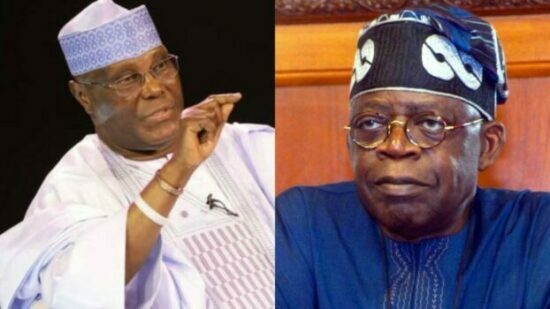One year after Bola Tinubu’s inauguration as President, his pledge to remodel the nation’s economy to bring about growth and development through job creation, food security, and extreme poverty has remained unfulfilled.
This is according to former vice president, Atiku Abubakar, who also observed in a statement to mark the anniversary on Tuesday, said that the administration had continued to run a cocktail of trial-and-error economic policies.
Noting that Nigerians heaved a sigh of relief after their experience with ex-President Muhammad Buhari’s “eight years of economic misadventure,” he said, Tinubu soon embarked on policies to remodel the economy with the elimination of fuel subsidies, the CBN implementation of a new foreign exchange policy while more policies with rapid succession.
However, the presidential candidate of the Peoples Democratic Party (PDP) in the 2023 election said: “Predictably, 12 months on, Tinubu’s pledge of growing the economy and ending misery remains unfulfilled.
“His actions or inactions have significantly worsened Nigeria’s macroeconomic stability. Nigeria remains a struggling economy and is more fragile today than it was a year ago.
“Indeed, all the economic ills – joblessness, poverty, and misery – which defined the Buhari-led administration have only been exacerbated.”
Pointing out that Africa’s leading economy has slipped to the 4th position lagging behind Algeria, Egypt, and South Africa, Atiku said Tinubu had dashed the hopes of Nigerians.
“Citizens’ hopes have been dashed (and not renewed contrary to the propaganda of the administration) as Nigeria’s economic woes have multiplied,” he said.
He blamed the administration for “unleashing reforms without sequencing; without any ideas on how to implement them; and without any regards to their potential and real devastating consequences. Implementing policies without proper planning and a clear destination is nothing other than trial-and-error economics.”
Highlighting four areas to underscore the risks involved in Tinubu’s policies, the former vice president stated that the president’s policies do not create prosperity, adding: “Instead, they pauperize the poor and bankrupt the rich. They spare no one. Nigerian citizens, the majority of whom are poor, are going through the worst cost-of-living crisis since the infamous structural adjustment programme of the 1980s.”
He noted the annual inflation rate of 33.69% and food inflation of 40.53% in April.
Citing other negative economic indices, Atiku accused the president of having the ‘courage’ to remove subsidy on PMS “and impose additional taxes on his people but lacks the compassion to raise the minimum wage or implement a social investment programme that would reduce the levels of vulnerability, and deprivation of workers and their families.”
He asserted that Tinubu’s policies create a hostile environment for businesses with several of them departing the country and over 20,000 jobs lost due to multinational departures.
The former presidential candidate also observed that President Tinubu’s foreign exchange policies have not had any positive impact on Nigeria’s foreign trade balance among other negative impacts.
He added that Tinubu’s policies have failed to attract foreign investments into the country “despite all the posturing and media hype by the President’s men.”
Continuing, Atiku stated: “Finally, despite deploying various monetary policy tools, inflationary pressure persists, and so does exchange rate volatility. No thanks to Tinubu’s misguided policy, the Naira’s value plummeted against the dollar and has since become the worst-performing currency in the world.
“It is clear from the foregoing that President Tinubu has an exaggerated understanding of the efficacy of his policies and was not ready for the potential fallouts. Tinubu and his team are not exactly sure of where the reform process is and what the next steps are. Has Nigeria reinstated fuel subsidy?
“Is the Naira on a free or managed float? These trial-and-error policies raise questions about the readiness of the administration and its capacity to restore the economy to a path of sustainable growth.
“Time is running out for the government, and Tinubu must act fast to save the economy.”
ALSO READ THESE TOP STORIES FROM NIGERIAN TRIBUNE
